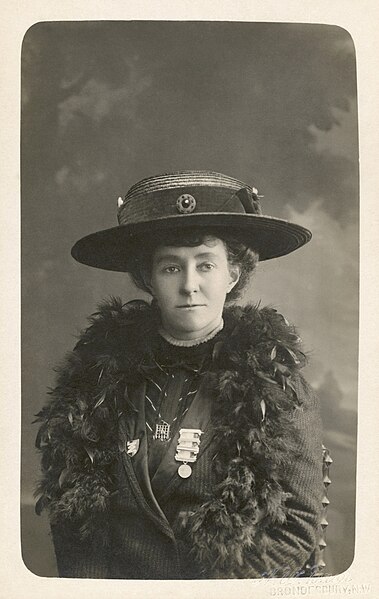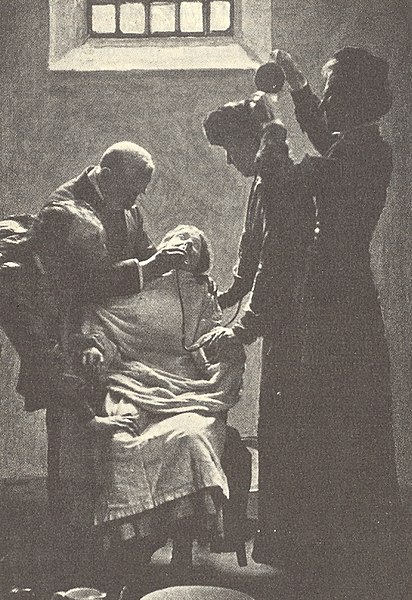Emily Wilding Davison was an English suffragette who fought for votes for women in Britain in the early twentieth century. A member of the Women's Social and Political Union (WSPU) and a militant fighter for her cause, she was arrested on nine occasions, went on hunger strike seven times and was force-fed on forty-nine occasions. She died after being hit by King George V's horse Anmer at the 1913 Derby when she walked onto the track during the race.
Emily Davison wearing her Holloway brooch and hunger strike medal, c. 1910–1912
Davison in 1908
A suffragette being force-fed in Holloway prison, c. 1911
Davison in 1912 or 1913
A suffragette was a member of an activist women's organisation in the early 20th century who, under the banner "Votes for Women", fought for the right to vote in public elections in the United Kingdom. The term refers in particular to members of the British Women's Social and Political Union (WSPU), a women-only movement founded in 1903 by Emmeline Pankhurst, which engaged in direct action and civil disobedience. In 1906, a reporter writing in the Daily Mail coined the term suffragette for the WSPU, derived from suffragistα, in order to belittle the women advocating women's suffrage. The militants embraced the new name, even adopting it for use as the title of the newspaper published by the WSPU.
Annie Kenney and Christabel Pankhurst of the WSPU, c. 1908
Emmeline Pankhurst founded the WSPU in 1903 and became the most prominent of Britain's suffragettes.
Mannequin of Lilian Metge
Emily Davison became known in the WSPU for her daring militant action.







